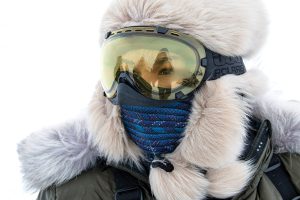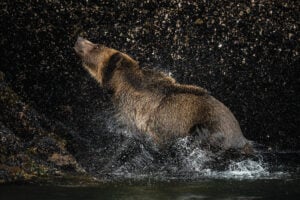
People & Culture
Kahkiihtwaam ee-pee-kiiweehtataahk: Bringing it back home again
The story of how a critically endangered Indigenous language can be saved
- 6310 words
- 26 minutes
People & Culture

When I was six years old, I went to my first overnight camp, and from then on, the all-too-short summers of my childhood were filled with mosquito bites, the smell of sunscreen and the crackle of a campfire. For many thousands of Canadian youth, summer is synonymous with camp — but this year will be different.
The COVID-19 pandemic has caused many provincial and territorial governments to rightly cancel the 2020 summer camp season, including many day camps. Kids won’t be tentatively stepping into the bunkhouse for the first time or learning to pitch their own tent, and teens won’t be working their first jobs as camp counsellors, armed with gimp and glitter and campfire songs.
For many, the cancellation of camp is an unfathomable loss.
“I got to leave the concrete jungle… To sleep in a tent, jump in a lake, experience adventure,” says Kaitlyn Patterson, a Rover Scout and member of the Scouts Canada leadership team, about her own childhood camp experiences. For kids who live in urban centres, camp is often their first exposure to the natural world. The opportunity to explore their independence and practice new skills away from home sets them up for future success.
“My connection and appreciation to nature stemmed from what I learned at camp and is demonstrated in a variety of ways in my everyday life, including escaping the office to take a nice walk and using it to decompress after a busy week,” says Patterson.
For kids who have come to rely on camp for that connection to nature, there’s a grieving process happening for their lost summer, says Child and Nature Alliance’s Heather Wilson.
“We’re all adjusting for this disappointment,” says Wilson. “We’re trying to help educators and parents and caregivers to bring the forest experience to their daily lives.”
According to Wilson, a relationship with nature is a cornerstone of a child’s wellbeing. She says her own son is struggling to navigate the very different world brought about by the pandemic, but has already identified one coping strategy: when he gets overwhelmed, he goes outside.
“He always gravitates to nature,” says Wilson. “He’ll find a tree to climb or a hill to roll down. Nature helps him develop resilience that is even more important now.”
Wilson acknowledges that without camps, finding opportunities to connect with nature will be challenging for some families, but she urges parents to think creatively and build outdoor time into their kids’ days.
“Go with child-led activities,” she says. “Allow children to explore their environment and see what they can make of it. Sometimes it’s really just a question of opening your back door.”
Organizations that run summer camps, like Scouts Canada, are facing huge revenue losses as a result of the cancelled season, which may have an impact on their future programming.
Just as the working world has quickly transitioned to Zoom meetings and webinars during the pandemic, Scouts Canada is forging ahead with a virtual alternative, offering a digital summer camp for youth ages eight to 13 in July and August.
“Our weekly programs will contain a variety of diverse activities, with an emphasis on fun, outdoor education, experiential learning, adventure and development of new skills and interests, while creating lasting memories for every camper,” says Katie McKenna, property operations director with Scouts Canada. There will also be a counsellor-in-training program to help youth develop leadership and management skills.
Patterson says even without camp, kids should find some way to learn something new.
“While this summer may be different from what we’ve known before, youth should seize the opportunity to learn a new skill like cooking, sewing, building a camp shelter, or even trying their hand at remodeling their bedrooms,” she says. “It will take a little more imagination and creativity, but adventure at home can lead to loads of fun.”
Yukon: Overnight camps permitted in Phase 2 of reopening with conditions; no timeline provided
British Columbia: No overnight camps for summer 2020
Northwest Territories: Overnight camps included in reopening phases for summer 2020; no timeline provided
Alberta: No overnight camps for summer 2020
Saskatchewan: Overnight camps included in reopening phases for summer 2020; no timeline provided
Nunavut: No official announcement
Manitoba: Overnight camps included in reopening phases for summer 2020; no timeline provided
Ontario: No overnight camps for summer 2020
Quebec: No overnight camps for summer 2020
New Brunswick: Overnight camps included in reopening phases for summer 2020; no timeline provided
Nova Scotia: No overnight camps for summer 2020
Prince Edward Island: Overnight camps included in reopening phases for summer 2020; no timeline provided
Are you passionate about Canadian geography?
You can support Canadian Geographic in 3 ways:

People & Culture
The story of how a critically endangered Indigenous language can be saved

Places
In Banff National Park, Alberta, as in protected areas across the country, managers find it difficult to balance the desire of people to experience wilderness with an imperative to conserve it

Science & Tech
The Canadian High Arctic Research Station is set to open in Cambridge Bay, Nunavut, later this year. How will it affect our understanding and appreciation of the North and the rapid change occurring there?

Wildlife
Salmon runs are failing and grizzlies seem to be on the move in the islands between mainland B.C. and northern Vancouver Island. What’s going on in the Broughton Archipelago?